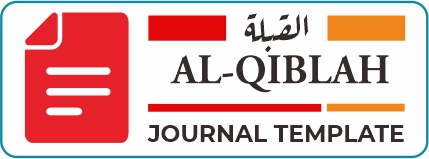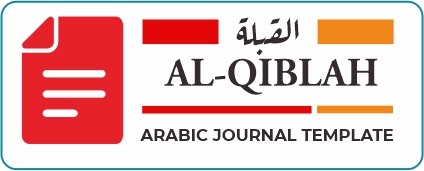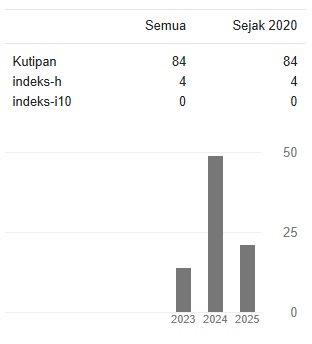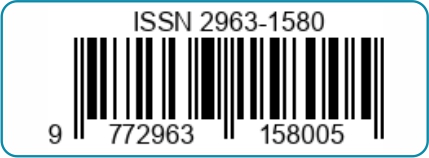Ḍawābiṭ Fatwa dalam Merespons Problematika Fikih Kontemporer
Ḍawābiṭ Fatwa in Responding to Contemporary Fiqh Problems
DOI:
https://doi.org/10.36701/qiblah.v3i6.1812Keywords:
Dawabit, Fatwa, Problematika, Contemporary FiqhAbstract
New or contemporary phenomena are always emerging along with the times. This requires a scientific answer or fatwa related to the problem, This research aims to find out the dawābiṭ fatwa in responding to contemporary fiqh problems. The problems raised by the author in this study are; First, what is the position of fatwa in resolving fiqh problems? Second, How is ḍawābiṭ fatwa in resolving contemporary fiqh problems? This research is a library research using normative and philosophical approach methods. The results of the study were found as follows; First, contemporary jurisprudence has a very important role in determining Islamic laws in the modern era. Second, ḍawābiṭ fatwa in resolving contemporary fiqh problems, namely: 1) Fatwa must be based on a deep understanding. 2) Analysis of complex problems with basic points. 3) The decision of the fatwa should not be hasty. 4) Fatwa decisions must involve experts in certain fields. 5) Fatwas must take into account differences in customs and traditions. 6) Fatwas must be made and based on experience. 7) The right fatwa must be based on the principles of fiqh. 8) Fatwa must be backed up or based on evidence and evidence. 9) The obligation of collective fatwas in the fatwas of the ummah and their priority over individual fatwas. 10) Fatwa must agree and be close to the mind regarding the rules of fiqh.
Downloads
References
Al-‘Audah, Sulaimān Bin Fahad. Al-Fatwa al-Mubāsyirah Wa Aḥkāmuhā. Oman: Al-Jam’iyatu al-‘Alamiyatu al-Malikiyah, 2007 M./1428 H.
Al-Bāḥisīn, Ya'qūb 'Abdu al-Wahāb. Al-Qawā'id al-Fiqhiyah al-Mabādi' al- Maqūmāt. Cet. I; Riyaḍ: Maktah al-Rusyd, 1418 H.
Al-Bayātī, 'Abdu al-Gafūr Muḥammad. Al-Qawā'id al-Fiqhiyah al-Kubrā, Bairut: Dār kutub al-'Alamiyyah, 1971 M.
Al-Fayumī, Ahmad Bin Muhammad Bin Alī. Al Misbāh Al Munīr, Juz 1. Bairut; Al Maktabah Al ‘Alamiyyah, 1431 H.
Al-Firaqī, Abu al-‘Abās Ahmad Bin Idrīs al-Ṣanhājī. al-Furūq Aw Anwār al- Burūq Fī Anwā’ al-Furūq, Juz 1. Cet. I; Bairut: Dār al-Kutub al- ‘Alamiyah, 1998 M./1418 H.
Al-Garnāṭi, Ibrāhīm Bin Mūsa bin Muhammad al-Lahmī. Al-Muwāfaqāt Fī Uṣūl al-Fiqhi, Juz 5. Cet. I; Bairut: Dār al-Ma’rifah, 1997 M./1417 H.
Al-Haiṡimī, Abu al-Hasan Nūr al-Dīn ‘Alī Bin Abī Bakr Bin Sulaimān. Mujma’ al-Zawāid al-Haiṡamī, Juz 1. Kairo: Maktabah al-Qadasī, 1994 M./1414 H.
Al-Subkī, Tāj al-Dīn 'Abdu al-Wahāb Bin Baqī al-Dīn. Al-Asybā' Wa al-Naẓāir, Juz 2. Cet. I; [t.t]: Dār al-Kutub al-'Alamiyyah, 1991 M./1411 H.
Al-Sūsūhi, Abdu al-Majīd Muhammad. Ạawābiṭ al-Fatwa Fī al-Qadāyā al- Mu'āṣirah. Cet. I; Yaman: Dār Al-Nasyr, [t.th.].
Al-Syafi'ī, 'Abdu al-Rahīm bin al-Hasan bin 'Alī al-Isnawī. Nihāyatu al-Sūl Syarah Minhāj al-Wuṣul. Cet. I; Beirut: Dār al-Kutub al-'Alamiyah, 1999 M./1420 H.
Al-Tūsī, Abū Ḥāmid Muḥammad Bin Muḥammad al-Gazālī. Al-iḥyā' 'Ulūmu al- Dīn. Cet. I; Bairut: Dār Ma'rifah, 2011 M./1432 H.
Al-‘Uṡaimīn, Muhammad Bin Ṣālih Bin Muhammad. Al-Usūl Min ‘Ilmu al-Usūl.
Cet. IV; Mesir: Dār Ibn al-Jauzī, 1430 H/2009 M.
Al-Zarkasyī, Abū 'Abdullah Badar al-Dīn Muḥammad bin 'Abdullah Bin Bahādir. Tasynīf al-Masāmi'u, Juz 3. Cet. I; [t.t]: Maktabah Qurtubah, 1998 M./1418 H.
Azhari, Fathurrahman. Qawaid Fiqhiyyah Muamalah. Banjarmasin: LKPU Banjarmasin, 2015.
Haroen, Nasrun Haroen. Ushul Fiqh. Cet.III; Jakarta: Logos Wacana Ilmu, 2001.
Masyuri dan Muhammad Zainuddin. Metodologi Penelitian. Bandung: Refika Aditama, 2008.
Miswanto, Agus. Ushul Fiqh: Metode Ijtihad Hukum Islam. Cet. 1; Magelang: Unnima Press, 2019 M.
Al-Nadwi, Ali Ahmad. al-Qawaid al Fiqhiyyah. Damaskus: Dār Qalam, 1994.
Al-Nawaī, Muhiyu Al-Dīn Yaḥya Bin Syaraf. Ādāb Al-Fatwa Wa Al-Muftī Wa Al- Mustaftī. Cet. I; Damaskus: Dār Al-Fikr, 1431 H.
Abī Ḥanīfah. Cet. I; Bairut: Dār al-Maktab al-'Alamiyyah, 1999 M./1419 H.
Pusat Bahasa Departemen Pendidikan Nasional. Kamus Besar Bahasa Indonesia. Jakarta, 2008.
Jurnal
Ansori. "Rekonstruksi Metodologi Fikih Kontemporer". Jurnal Kajian Hukum Islam 12, no.2 (2018): 330.
Arifin, Bustanul “Fatwa Dan Demokrasi : Studi Terhadap Fatwa Majelis Ulama Indonesia (MUI),” At-Tahdzib: Jurnal Studi Islam dan Muamalah 3, no. 1 (November 18, 2015): 16.
Halim, Hisan Abdul,Azman Ab Rahman, and Abdul Manan Ismail. "Amalan Dan Kaedah Pengeluaran Fatwa Oleh Jawatankuasa Fatwa Negeri Kelantan: Analisis Awal: Practices And Methodology of Issuing Fatwa by the Fatwa Committee of Kelantan: Pre-Analysis", Journal of Fatwa Management and Research, (2018): 2.
Husain. “Metode Ijtihad Kontemporer Menurut Yusuf Al-Qardawi”, Jurnal Studi Islam Fak. Syariah Dan Ekonomi Bisnis Islam STAIN Majene (2019): 10.
Mahfudin, Agus. "Ijtihad Kontemporer Yusuf Al-Qaradawi Dalam Pengembangan Hukum Islam", Religi:Jurnal Studi Islam 5, no.1 (2014): 22.
Muhaki. ‘Urgensi Kaidah Fikih Dalam Problematika Hukum Kontemporer’, Jurnal Studi Islam, 15.2 (2020), 128–45.
Nizar, Muchamad Coirun Nizar. ‘Qaul Shahabi Dan Aplikasinya Dalam Fikih Kontemporer’. Jurnal Studi Dan Penelitian Hukum Islam, 20–38.
Rambe, Khairul Mufti. "Beberapa Istilah Penting ; Membandingkan Qawaid Fikihiyah Dengan Dhabit Fikih, Nazhariyah Fikihiyah, Dan Kaidah Ushuliyah", Landraad: Jurnal Syariat & Hukum Bisnis, 1 no. 2 (2022):101.
Ridwan, Muannif "Ijtihad Pada Era Kontemporer (Konteks Pemikiran Islam Dalam Fiqih Dan Maqashid Al-Syariat)" , Jurnal Masohi, 1 no. 2 (2020): 111.



 FOCUS AND SCOPE
FOCUS AND SCOPE EDITORIAL TEAM
EDITORIAL TEAM












